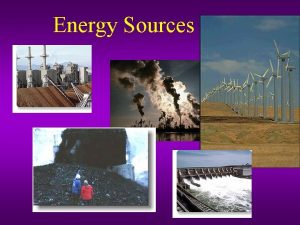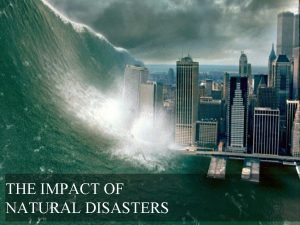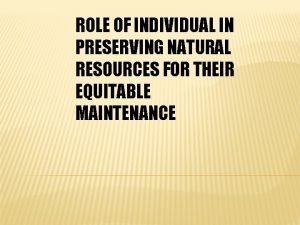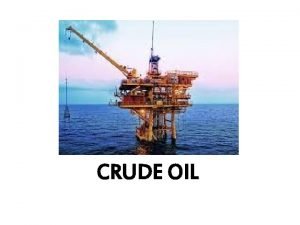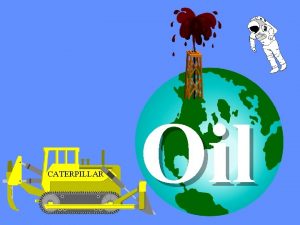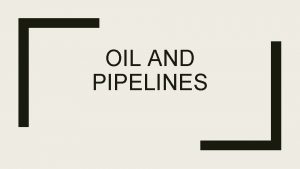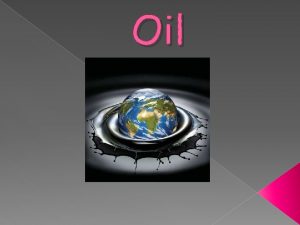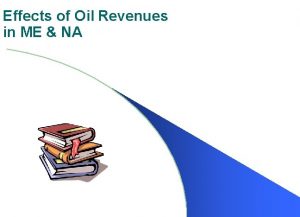Environmental Effects The Environmental Effects of Using Oil










- Slides: 10

Environmental Effects

The Environmental Effects of Using Oil Petroleum fuel releases pollutants when burned. These pollutants contribute to smog and cause health problems.

The Environmental Effects of Using Oil spills from tanker ships are another potential environmental problem of oil use. While oil spills are dramatic, much more oil pollution comes from everyday sources, like leaking cars.

The Environmental Effects of Using Oil Emissions regulations and technologies have helped reduce the air pollution. Unfortunately, measures to reduce everyday contamination of our waterways from oil lag far behind the efforts to prevent large spills.

Natural Gas About 20% of the world’s nonrenewable energy comes from natural gas. Natural gas, or methane (CH 4), produces fewer pollutants than other fossil fuels when burned. Electric power plants can also use this cleanburning fuel.

Fossil Fuels and the Future Fossil fuels supply about 90% of the energy used in developed countries. As the demand for energy resources increases, the cost of fossil fuels will likely increase. Planning for the energy we will use in the future is important because it takes many years for a new source of energy to make a significant contribution to our energy supply.

Predicting Oil Prediction Oil production is still increasing, but it is increasing much more slowly than it has in the past.

Predicting Oil Production When predicting oil production: Oil reserves are oil deposits that are discovered and are in commercial production. Oil reserves can be extracted profitably at current prices using current technologies. In contrast, some oil deposits are yet to be discovered or to become commercial.

Predicting Oil Production Prediction must also take into account the changes in technology that will allow more oil to be extracted in the future. All predictions of future oil production are guided by an important principle: the relative cost of obtaining fuels influences the amount of fossil fuels we extract from the Earth. As supplies decrease, oil may be used more selectively. Also, we may begin to rely on other energy sources to power items like cars and power plants.

Future Oil Reserves No large oil reserves have been discovered in the past decade. Geologists predict that oil production from fields accessible from land will peak in about 2010. Additional oil reserves exist under the ocean, but it is expensive to drill for oil in the deep ocean. Currently, oil platforms can be built to drill for oil in the ocean, but much of the oil in the deep ocean is currently inaccessible.

